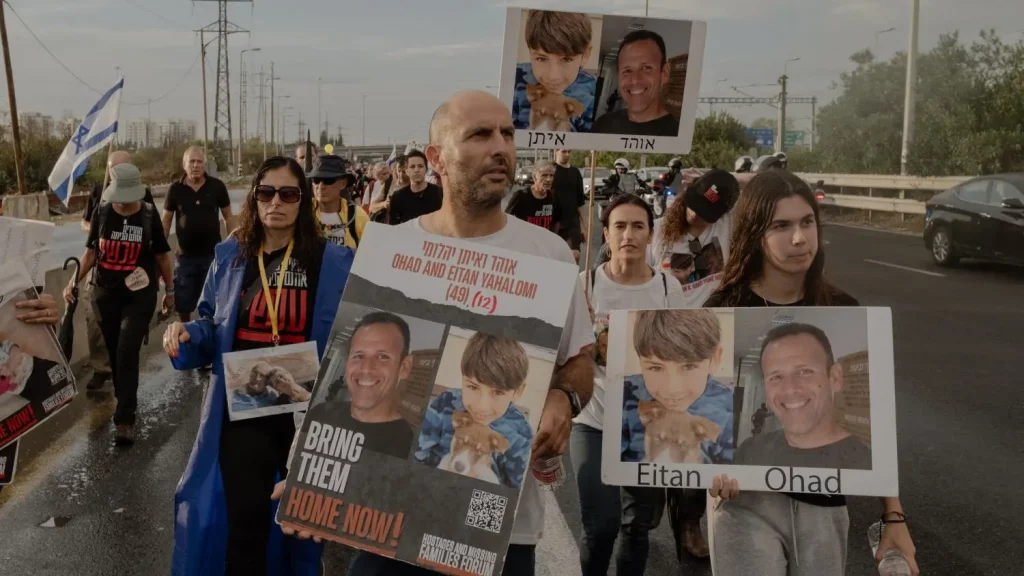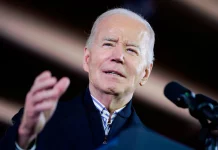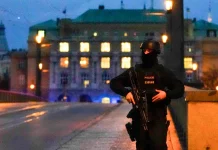“According to sources familiar with an emerging agreement, a U.S.-brokered deal could secure the release of dozens of women and children from captivity in Gaza, in return for a five-day halt in hostilities, monitored by aerial surveillance.
The deal, which is close to being finalized by Israel and Hamas, could pave the way for the first prolonged pause in the conflict in Gaza.
The terms of the deal, which are detailed in a six-page document, would oblige all parties to the conflict to cease combat operations for a minimum of five days, while at least 50 hostages are freed in gradual increments every day. The exact number of the 239 people who are believed to be held captive in Gaza and who would benefit from the deal is still unclear. The pause in fighting would be enforced by overhead surveillance that would track the movement on the ground.
The deal would also facilitate a substantial increase in the delivery of humanitarian aid, including fuel, to the besieged territory from Egypt.
An administration official, who spoke on the condition of anonymity, said on Saturday that “we have made some progress recently and have been working hard to advance this, but it remains a volatile situation.” After this article was first published, National Security Council spokesperson Adrienne Watson tweeted that there was “no deal yet but we continue to work hard to get a deal.”
The deal was drafted during weeks of talks in Doha, Qatar, among Israel, the United States and Hamas, who were indirectly represented by Qatari mediators, according to Arab and other diplomats. However, it was not clear until now that Israel would agree to temporarily suspend its offensive in Gaza, if the conditions were met.
A spokesperson for the Israeli Embassy in Washington declined to comment on any aspect of the hostage situation late on Saturday.
The fate of the captives — two of whom Israel said were killed — and the mounting number of Palestinian civilian casualties have increased the pressure on Prime Minister Benjamin Netanyahu’s government. More than 100 countries — but, notably, not the United States — have demanded a full and immediate cease-fire.”
Israel faces tough choice over hostage deal amid Gaza war

Israel is facing a difficult decision over whether to accept a deal that would secure the release of hundreds of hostages held by Hamas in exchange for a temporary cease-fire in the ongoing war in Gaza.
According to a person familiar with the situation, who spoke on the condition of anonymity, the deal is hard for Israel to swallow, as it faces strong domestic pressure from both sides. On one hand, many Israelis are urging Prime Minister Benjamin Netanyahu to bring the hostages home, especially the nine Americans and one permanent U.S. resident among them. On the other hand, many Israelis are opposed to any concessions to Hamas, and want the government to continue its military offensive until it achieves its objectives.
Netanyahu has publicly maintained a tough stance, while acknowledging the challenges he faces. On Friday, he said that the war cabinet had unanimously agreed that a limited cease-fire could only happen after “a massive release of our hostages … and it will be limited and short, because after that we will continue to work towards achieving our war goals.”
On Saturday, he reiterated that the offensive would go on, while defending his decision to allow the first steady fuel transfers into Gaza since the war began. He said that this was necessary to maintain international support, as Israel has cut off most of the supplies that the 2.3 million people in Gaza rely on for survival. “For international support to continue, humanitarian aid is essential,” he said. “Because of that, we accepted the recommendation to bring fuel into Gaza.”
Netanyahu’s remarks came as thousands of relatives and supporters of the hostages marched from Tel Aviv to Jerusalem, demanding that the government act to free them. Many of them argued that the lives of innocent Israelis were worth any short-term deal with Hamas.
The Biden administration, which initially hesitated to intervene in the conflict, has fully backed the idea of a temporary pause in the fighting. Since President Biden’s visit to Tel Aviv a week after the war started, he and other senior officials have repeatedly urged Netanyahu to accept the deal, warning him that he is losing the moral high ground as more Palestinians die. The death toll in Gaza is now reportedly over 11,000.
The administration’s main concern, however, has been the fate of the American hostages. “I think we need a pause,” Biden said at a campaign event two weeks ago. “A pause means time to get the prisoners out.”
“President Biden has urged Israeli Prime Minister Netanyahu to extend the ceasefire in the ongoing conflict with Hamas, saying he was seeking a way to facilitate the release of the hostages held by the militant group. He made the remarks in a press conference on Thursday, after meeting with Chinese President Xi Jinping.
According to U.S. officials, a pause in the hostilities would enable Hamas to gather the hostages and coordinate their safe passage through the war zone. They said they were not sure if the first batch of releases would include any Americans or other foreigners. They expressed hope that the successful release of women and children would pave the way for more captives to be freed.
Brett McGurk, the White House National Security Council’s senior Middle East adviser, is on a prolonged visit to the region to work on the hostage release plan, meeting with officials in Israel and Qatar. He spoke at an international security conference in Bahrain on Saturday, saying the talks were “intense and ongoing.”
He cited the example of an American mother and daughter who were among the four hostages released so far, during a short lull in the fighting that allowed humanitarian workers to escort them. He said this was a “model” for “what we hope will be a much bigger release.”
McGurk said that if Hamas released a “large number” of the hostages, estimated at 239, it would lead to a significant halt in the fighting and a huge influx of humanitarian aid. He said hundreds of trucks would enter Gaza from Egypt on a regular basis. He said the release of the hostages would bring about a “major, major shift.”
McGurk said it was “sensible” to “stop the fighting, free the hostages, the women, the children, the toddlers, the babies, all of them.” He said the initial agreement did not cover civilian men or Israeli soldiers, some of whom were women, among the hostages.
However, Jordanian Foreign Minister Ayman Safadi criticized McGurk’s comments, interpreting them as implying that humanitarian relief would only follow the unconditional release of the hostages by Hamas. He said, “There are a lot of negotiations, but Israel is holding 2.3 million Palestinians hostage … and depriving them of food and water by this war.”
A U.S. official said anyone who assumed that the United States was linking aid to the release of hostages had “badly misunderstood” McGurk’s comments. The official said, “Any kind of hostage deal would probably result in more humanitarian aid.” The official added that the United States had always advocated for more humanitarian assistance to civilians in Gaza.”





